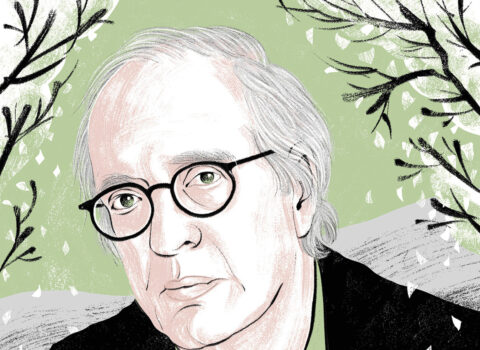Last week, Arthur Krystal suggested in our discussion that contemporary culture now suffers from a dearth of great art. Krystal quoted Eliot’s statement about Yeats—“He was one of those whose history is the history of their own time, who are part of the consciousness of an age which cannot be understood without them”—and said, in so many words, “show me a poet or a novelist of whom one can say the same today.”
The question of “greatness” is an interesting one, worth debating, but as the long weekend looms and, undone by aestivation, I’d rather point you towards it than argue for it. This weekend’s weekend read is therefore devoted to the most significant, serious, and joyous literary artist of our time—the poet Frederick Seidel.
“Joyous,” of course, may seem like a questionable adjective to apply to poems in which death and the declines and disappointments of the body coexist with the ecstatic use of same. But if the content of Seidel’s poems—typically the self, and not infrequently a persona blended with or standing for that of the poet—may creep into the dark, the means Seidel marries to such material are anything but shadowy. To again quote Krystal quoting someone else, “Tom Mallon once observed, [that much contemporary poetry reads] like ‘prose that has been annoyed into verse.’” Seidel’s scansions are full-fledged and if they annoy it’s by intent, not by incompetence. They are informed by the history of poetry on paper as much as the story of poetry in song—the sung being the forerunner of anything memorable said.
So, in a labor-saving Labor Day edition of the weekend read, don’t read. Listen to Seidel read. Twenty-two of his poems, ranging in length from one minute to nine, are available to hear; and his is an agreeably disagreeable voice to have in one’s head, the great voice of the current culture’s consciousness, whether we’re listening or not.





